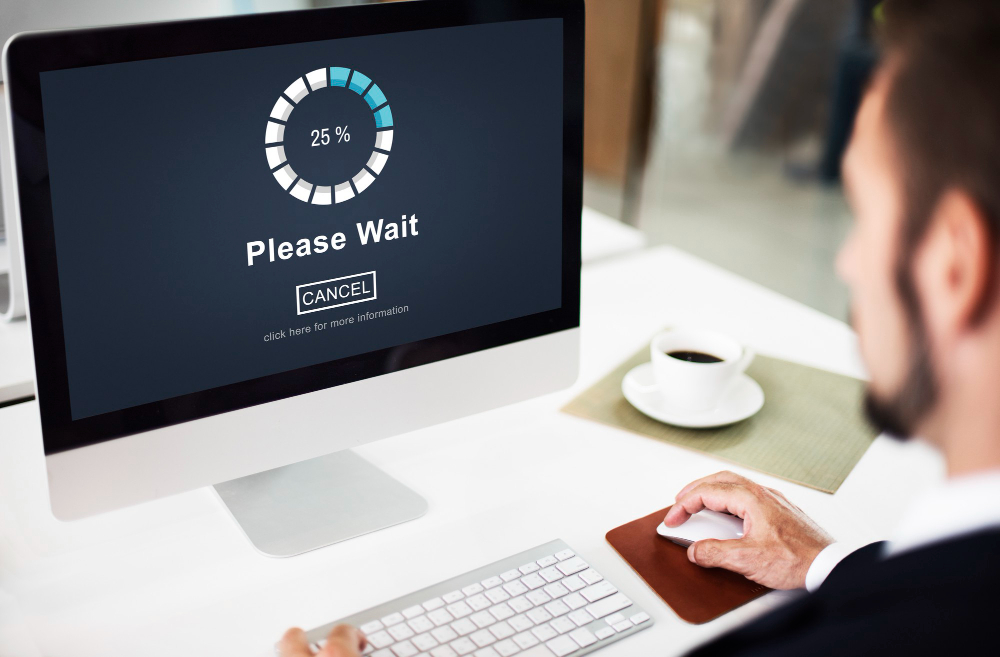Hackers or cybercriminals are clever; they don’t get caught. In fact, they leave your device clean as a whistle after they have done their dirty work. Sometimes they even show off what they have been able to do – from showing you an ad for ‘sexy lingerie’ to installing malware on your phone and spying on you through the webcam; these things happen all the time.
Want to reduce security risks on your site? Then choose WPMU DEV, an all-in-one secure platform for hosting and managing your precious WordPress sites. Get 20% off any of their plans here.
If you are not careful, hackers will do some real damage to your computer. They can even study you for years until they find something that makes them money.
So, here are seven signs your computer has been hacked.
Contents of Post
Your Computer is Running Slow

Computer hackers have the ability to run programs in the background of your device, which takes up space and also, energy. It’s possible that after they have infiltrated your system, it might be harder to open files or programs because they’re using too much memory already.
If this starts happening, try closing out all except one program at a time when you are trying to access something before you go into full panic mode.
Inexplicable Ads
The worst thing about a virus or a hacker is that it can get into your computer while you are doing something else. It’s entirely possible that the last thing you did was download a silly app, press play on a video, or read an article before your screen started showing ads for underwear and lingerie even though you have no interest in either of these things at all. I guess the best thing to do when this happens is to check what sites you’ve been visiting and ask yourself if anything makes sense.
Computer Won’t Boot Automatically

You arrive at work in the morning and find out that your company server hasn’t booted up properly for some reason. The reason might be that a hacker has shut it down remotely or even just changed the default booting program.
On your personal computer, you might find that your laptop is refusing to start up without holding in a combination of keys.
Files Have Disappeared from Your Computer
It’s been several days since you noticed, but files have disappeared from all over your hard drive, and they haven’t been backed up in the cloud either. This might mean that a hacker is tinkering around with everything you have stored on there, and it’s difficult to know whether he will show his hand by deleting something important later on.
If possible, try not to touch anything right now because that could be enough for him to trace what you are doing back to you.
You’re Using More Data Than Usual

You might hate the idea of it, but as a computer user, you use data up as you go online. This is normal, and we can’t do anything about it. Yet, if your phone bill comes and there seems to be tons of extra data that you don’t remember using, then somebody has been looking at your web history and statistics, and they know what websites you have visited and for how long.
This could be because someone hacked into your device or because somebody else was using your account without permission.
Your Phone Has Been Suspiciously Hot
It happens to everyone – our phones get too hot sometimes when we are using them. However, if it starts happening more than usual, then somebody has installed something on your phone that makes it warm up quickly.
It might even be that someone is trying to get your attention because you turn off the phone and use it again later on, only for it to warm up all over again.
Your Phone or Computer Makes Weird Noises

Many people know about computer viruses, but not everyone knows what they sound like. So if your phone makes weird noises when you are using it, make sure to check it out thoroughly before handing over cash to take care of the latest adware problem.
I’ve Been Hacked, Now What?
We’ve looked at several signs that indicate you have been hacked. But what do you do if it does happen? There are a few things to remember if your device has been compromised:
- Contact your service providers right away so they can take the necessary actions.
- Start using safe practices on your device. Make sure to use unique passwords, only download from trusted providers, and keep software up to date. If possible, install antivirus programs onto all of your devices too.
- Don’t pay the ransom!
- Always avoid any requests for money or personal information – even if you think that nobody will ever find out! This just helps hackers continue their activities and make more people vulnerable.
- Run an advanced background check on yourself to determine whether your phone number, social media profiles, email addresses, and credit cards are hacked. These services usually cost around $30, but it’s better than losing thousands of dollars or having your identity stolen.
- Above all, if you think the hacker has already deleted his tracks, don’t try to put everything back together yourself. Hackers are not dumb, and they know how to cover their tracks better than most people. If you can, go into hiding until your IT department or service providers have addressed the problem.
The Bottom Line
It’s not just one or two people that get hacked each year – it’s everyone! So always try to be vigilant and avoid clicking into suspicious emails, websites, and pop-ups.
Even if you don’t fully understand cybersecurity rules, at least try to look out for yourself and your loved ones.

